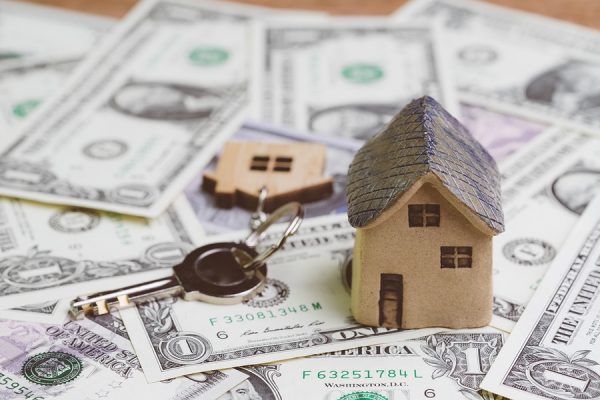First Time Home Buyers Guide to Closing Costs
You have your downpayment. Great. You are ready to close the deal on your loan and start making bids on houses! Soon you get your closing statement and there are extra charges you might not be expecting. Wait — is someone trying to pull a fast one and pad their profits? Well no. The mortgage lending industry is set up to block anything like that. Fortunately, there are whole books of legislation that protect the borrower from such tricks and scams. But what are closing costs?
If you’re a first time home buyer, it pays to learn about the loan closing process so you’re prepared for closing expenses. Here are some questions that might occur to you with simple answers.

What are closing costs?
Closing costs are fees paid at the close of a real estate transaction, at the point when the title to the property is conveyed to the buyer. They can be paid by either the buyer or the seller.
There are two different categories of closing costs. Recurring closing costs, also called prepaid items, and nonrecurring closing costs (NRCCs). We’ll describe more below.
Recurring Closing Costs or Prepaid Items
What are prepaid items?
These are costs that are associated with the maintenance of the borrower’s loan and normal property maintenance that are regular recurring costs that are paid monthly or annually. These costs include normal interest due on the loan, property taxes that are paid twice a year or monthly, and insurance.
What kind of insurance is in prepaid items?
Insurance includes home owner’s insurance/fire insurance/hazard insurance — three terms for the same exact thing — and in some cases, private mortgage insurance (PMI). PMI is required when the loan amount is greater than 80% of the purchase price/value of the property.
What is private mortgage insurance (PMI)?
When the loan amount is greater than 80% of the property price/value (greater than 90% in California), the lender requires you to have insurance on the loan. PMI allows for collection of the property taxes and homeowner’s insurance in advance to protect the lender in case something happens and the mortgage goes unpaid. The lender will then be able to recoup their losses.
When do I pay the PMI bill?
PMI is collected monthly as part of the total mortgage payment. The loan servicer will make the biannual property tax and annual home owner’s insurance payments on the borrower’s behalf when due.
How does PMI get paid?
In order to start this process, you will have to set up an escrow/impound account (both terms for the same exact thing in California) with the new lender/servicer. You can then pay monthly property taxes and homeowner’s insurance as part of the total monthly mortgage payments.
What is an escrow/impound account?
An escrow/impound account is simply a bank account that your loan servicer has access to. You put your money into the account and the loan servicer is able to send it out to the various recipients as needed. This is the service that a loan servicer provides.
How much money should I put into the escrow/impound account at closing?
You can estimate between 4 and 10 months of property taxes and 2-3 months of fire insurance impounded (collected) at closing to set up the escrow/impound account. That is your money that sits in the escrow account accruing a negligible amount of interest. That money grows each month until it pays your property taxes that are due twice a year and your home owner’s insurance premium that is due once a year. There will always be at least 2 months property tax payments and 2-3 months fire insurance payments sitting in the Escrow/Impound account at all times Aside from these collected (but not submitted yet) payments, you will then pay a 12-month fire insurance premium at closing.
How is interest on the loan paid?
You will pay the lender an amount of mortgage interest equal to the number of days left in the month in which you close and then your first mortgage payment will be due the 1st day of the 2nd month following the date of closing.
Payment due on the 2nd month — do I get a free month?!
This is actually a bonafide “frequently asked question”. Short answer: Not really — you already paid for it!
Your mortgage payments will always pay the prior month’s interest. For that reason, you will likely not have a mortgage payment due the 1st day of the 1st month after the closing date because there will be no full month’s prior interest to cover. That is why we take the interest for the month in which you close through the closing.
NRCCs or One-Time Charges
NRCCs are NonRecurring Closing Costs, one-time charges, as opposed to the ongoing items above.
Appraisal Report
An appraisal report is usually ordered to determine the current value of the subject property.
Preliminary Title Report
A preliminary title report is required to ensure a successful transfer of ownership.
Escrow Fees
Escrow fees are allocated to the bank or servicer that collects and distributes funds to actually make the financial transaction possible.
HOA (Homeowners Association) Fees
Fees paid to the Association of your condominium or neighborhood
Termite/Pest Inspection Report
Your lender may require a termite/pest inspection of your property to make sure it’s not full of termite holes or swarming with varmints. They will submit their fee at closing time.
Loan Processor Fee
The loan processor is the poor person who is responsible for contacting all the different people involved in all the complexities of the loan. The make sure each person has the correct paperwork, signed at the right time, and directed to the right place.
Local Taxes
We covered taxes, fire insurance, and interest under prepaid items… is there more? Sometimes, yes! More taxes! Congratulations you may now be a contributing citizen to the city you live in.
In some cities like San Francisco, Oakland, and Berkeley there is a one-time city transfer tax that is required to be paid at closing that the seller and buyer split 50/50. This amount can be as much as 1.5% of the sales price so don’t let it sneak up on you come closing day! A good mortgage broker will make sure you are in the know.
What are the appraisal costs?
-
- Single unit, owner-occupied, residential property value less than $1 million
The cost of the appraisal is around $450 – $550, no matter which lender the borrower works with or that we contract with. - Single unit, owner-occupied, residential property value is over $1 million
The cost of the appraisal could be $100 – $150 more than the standard appraisal cost. - Rental property
There could be an additional $100 cost because the appraiser must do additional rental property research and add additional forms to the appraisal report. - Multi-unit residential properties (2-4 Units)
Multiple units add to the cost of an appraisal. Depending on the lender and the appraisal management company that lender requires for the appraisal, the cost could be anywhere from $650 – $1000. - Rush the appraisal
When a rush is needed, there is a $100 fee to rush the appraisal and get it back within a few days. - Commercial property
Appraisals for commercial property are a whole different category. But expect these costs to be $3000 and up! Any residential building with more than 4 units is considered commercial.
- Single unit, owner-occupied, residential property value less than $1 million
What are escrow and title fees?
Escrow and title fees are the same no matter who you choose for the loan. The escrow/title company quotes these fees. The cost is dependent on the purchase price and loan amount.
For a refinance transaction, these fees are usually between $1000 and $1500 depending on the size of the loan. For purchase transactions, these costs go up and are quoted for each specific transaction but should be similar regardless of the escrow and title company used because these fees are state-regulated.
What are HOA fees?
Sometimes there is a Home Owner’s Association (HOA) fee involved in the transaction for homes, condominiums and townhomes. If so, there are additional fees that the HOA collects to provide documents and reports that pertain to the HOA that the lender may require. These costs are usually up to $350 and vary from HOA to HOA.
What are termite/pest inspection fees?
We don’t count the home inspection and pest inspection costs in the loan costs. But when purchasing a home, be prepared to pay between $350 – $500 for each of these inspections if you elect to have these inspections as part of the contract to purchase a property.
What are loan processor fees?
We collect a $945 fee for the loan processor who coordinates the paperwork with all of the various entities involved closing the transaction such as the lender, property appraiser, and escrow/title companies. But we do not charge any application, administrative, or underwriting fees. We don’t even charge for the credit report as we consider it a cost of doing business.
Who pays the mortgage broker?
Typically, our commissions are already included in the rate and point combinations we quote. In most cases, the lender pays our commission, so you will not pay that in addition to other closing costs. Sometimes it is more advantageous from a rate and cost perspective to have the borrower pay our commissions. In that case, we present those options if it makes a more advantageous deal for you!
More questions about closing costs and mortgage loans?
Get off to the right start before starting your property hunt by reading our page About Mortgage Loans. Or just call! We’re happy to consult with you at no obligation, too. Feel free to email us or call the office at 510-665-2868.


